Terran Mott
Game Theoretic Decentralized and Communication-Free Multi-Robot Navigation
Dec 17, 2020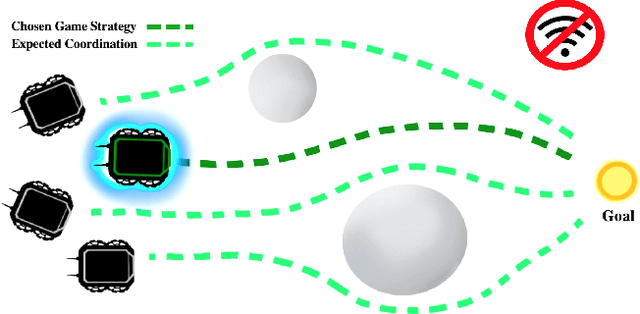
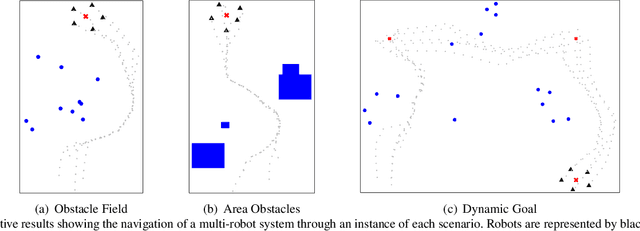
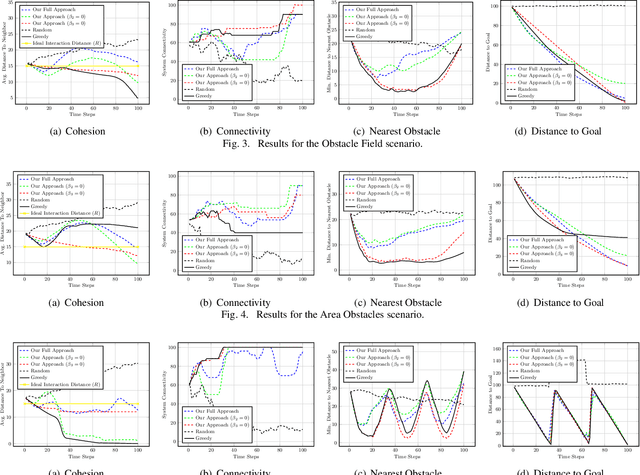
Abstract:Effective multi-robot teams require the ability to move to goals in complex environments in order to address real-world applications such as search and rescue. Multi-robot teams should be able to operate in a completely decentralized manner, with individual robot team members being capable of acting without explicit communication between neighbors. In this paper, we propose a novel game theoretic model that enables decentralized and communication-free navigation to a goal position. Robots estimate the behavior of their local teammates in order to identify behaviors that move them in the direction of the goal, while also avoiding obstacles and maintaining team cohesion without collisions. We prove theoretically that generated actions approach a Nash equilibrium, which also corresponds to an optimal strategy identified for each robot. We show through simulations that our approach enables decentralized and communication-free navigation by a multi-robot system to a goal position, avoiding obstacles and collisions, while also maintaining connectivity.
Adaptation to Team Composition Changes for Heterogeneous Multi-Robot Sensor Coverage
Dec 17, 2020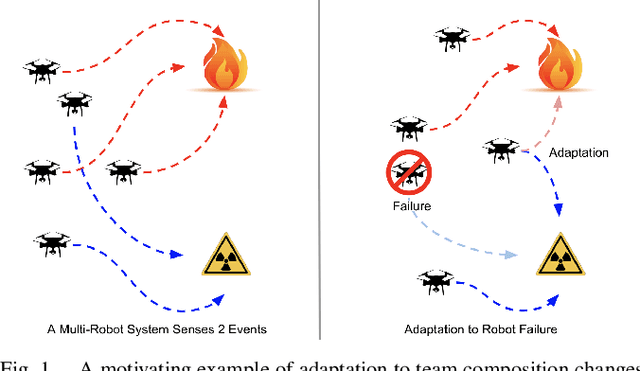
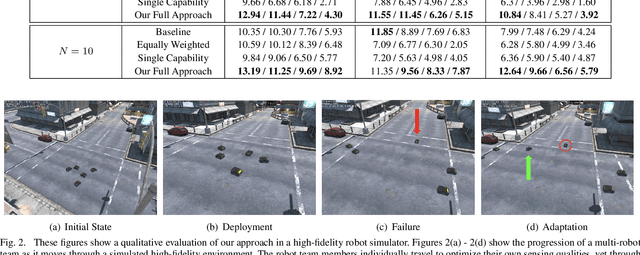
Abstract:We consider the problem of multi-robot sensor coverage, which deals with deploying a multi-robot team in an environment and optimizing the sensing quality of the overall environment. As real-world environments involve a variety of sensory information, and individual robots are limited in their available number of sensors, successful multi-robot sensor coverage requires the deployment of robots in such a way that each individual team member's sensing quality is maximized. Additionally, because individual robots have varying complements of sensors and both robots and sensors can fail, robots must be able to adapt and adjust how they value each sensing capability in order to obtain the most complete view of the environment, even through changes in team composition. We introduce a novel formulation for sensor coverage by multi-robot teams with heterogeneous sensing capabilities that maximizes each robot's sensing quality, balancing the varying sensing capabilities of individual robots based on the overall team composition. We propose a solution based on regularized optimization that uses sparsity-inducing terms to ensure a robot team focuses on all possible event types, and which we show is proven to converge to the optimal solution. Through extensive simulation, we show that our approach is able to effectively deploy a multi-robot team to maximize the sensing quality of an environment, responding to failures in the multi-robot team more robustly than non-adaptive approaches.
 Add to Chrome
Add to Chrome Add to Firefox
Add to Firefox Add to Edge
Add to Edge